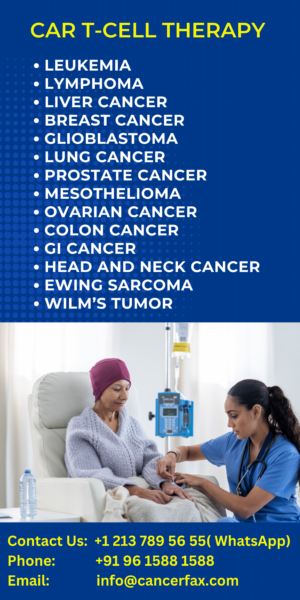Abecma – Idecabtagene Vicleucel
The drug Abecma, which is also called Idecabtagene Vicleucel, has become a new way to treat multiple myeloma. In this new method, autologous T cells are genetically changed to produce a chimeric antigen receptor (CAR) that targets the B-cell maturation antigen (BCMA). The treatment is only for adult patients with relapsed or refractory multiple myeloma who have already been through at least three rounds of treatment, which may have included immunomodulatory medicines, proteasome inhibitors, or anti-CD38 antibodies.
How does Abecma works?
Abecma works by using the defense system of the patient to its fullest. The patient’s white blood cells are taken out through a process called leukapheresis and sent to a manufacturing center, where they are genetically changed to produce the CAR targeting BCMA. When these engineered T cells are put back into the patient, they are ready to find and fight multiple myeloma cells. This makes the treatment more personalized and effective.
Abecma (Idecabtagene Vicleucel) is a new type of medicine used to treat multiple myeloma that has come back or is not responding to other treatments. It is a chimeric antigen receptor (CAR)-positive T cell treatment that goes after the BCMA antigen. As part of this new treatment, a patient’s T cells are genetically changed to produce a CAR that targets and kills BCMA-expressing myeloma cells. The first step is leukapheresis, which removes the patient’s white blood cells. These cells are then genetically changed to include a new gene that targets and kills myeloma cells. Once changed, these engineered T cells are put back into the patient. There, they multiply, release cytokines, and kill cells that produce BCMA. This provides a personalized and targeted way to treat the disease.
Abecma works by activating specific CAR-positive T cells, which then multiply, release cytokines, and kill BCMA-expressing cells by destroying them. The goal of this targeted method is to fight multiple myeloma by using the immune system of the patient to find and kill cancerous cells.
To sum up, Abecma (Idecabtagene Vicleucel) is a big step forward in the treatment of multiple myeloma because it uses genetically modified T cells to find and kill cancerous cells that produce BCMA. This gives people with this difficult disease new hope.
Clinical Effectiveness
Abecma has been shown to be effective in treating multiple myeloma that has come back or is not responding to other treatments. Response rates in studies have been very high, with rates of strict complete response (sCR), very good partial response (VGPR), and partial response (PR). Notably, Abecma has shown promise even in patients with extramedullary disease and high-risk cytogenetics.
Safety Record
Abecma is a new way to treat cancer, but it is important to think about how safe it is. Abecma can have side effects that need to be closely watched, just like many other advanced treatments. Cytokine release syndrome (CRS), immune effector-cell related neurotoxicity syndrome (ICANS), febrile neutropenia, infections, and hematologic toxicities are some of the things that can happen to patients. To keep patients safe during treatment, it is important to quickly recognize and deal with these bad events.
What are the common side effects of Abecma (idecabtagene vicleucel)?
Abecma (Idecabtagene Vicleucel) can cause cytokine release syndrome (CRS), infections, fatigue, musculoskeletal pain, peripheral sensory neuropathy, tremors, insomnia, anxiety, renal failure, cough, dyspnea, rash, xerosis (dry skin), low blood pressure, and lab abnormalities such as neutropenia, leukopenia, lymphopenia, anemia, hypophosphatemia, and hyponatremia. Abecma may also cause low levels of gamma globulin, infections and parasites, loss of appetite, motor failure, encephalopathy, headaches, dizziness, peripheral neuropathy, and other neurological toxicities. Patients should be aware of these possible side effects and tell their doctors right away about any signs that make them feel uneasy so that they can be properly treated.
Approval from regulators and plans for the future
The European Medicines Agency and the Food and Drug Administration have both given their approval for Abecma to be used to treat multiple myeloma that has returned or is not responding to other treatments. Researchers are still working together to find out how Abecma can be used in earlier stages of therapy and to look into its long-term effects. The constant improvement of CAR T-cell treatments like Abecma represents a major shift in how we deal with difficult hematologic cancers.
Finally, Abecma is a leader in specialized medicine and gives hope to people whose multiple myeloma has come back or stopped responding to treatment. It has a unique way of working and has shown promise in clinical trials, which shows how important it is for changing the way this complicated disease is treated. As research advances and more real-life experiences are gained, Abecma continues to pave the way for new ways to treat cancer, highlighting the power of precision medicine to improve patient results and quality of life.
- Comments Closed
- March 20th, 2024









Privacy Overview